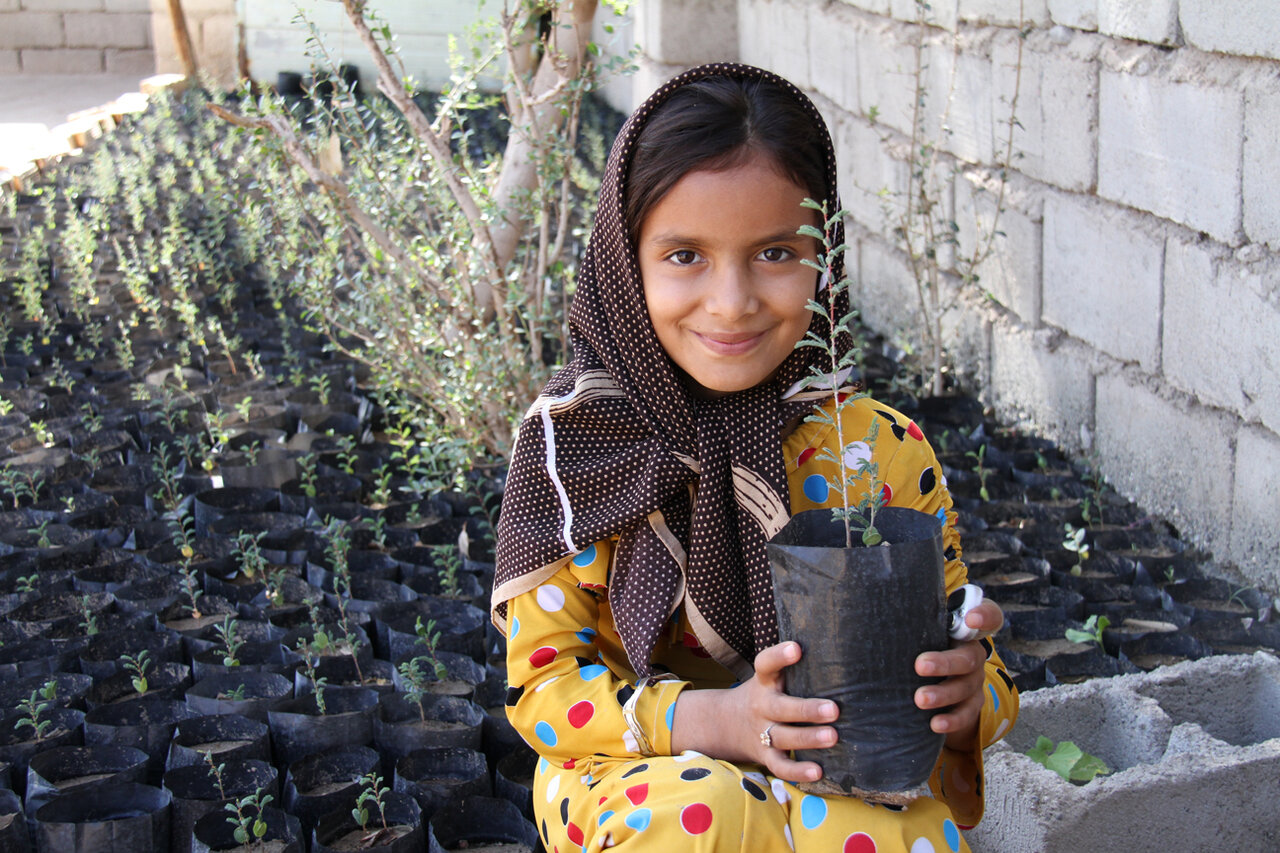FAO implements Rehabilitation of Forest Landscapes and Degraded Lands in Iran

TEHRAN - Amidst the picturesque desert landscapes of Rigan in the Islamic Republic of Iran’s southeastern Kerman province, one community is witnessing a remarkable revival of its culinary tradition while upholding environmental sustainability.
Such a transformation is the fruit of the Rehabilitation of Forest Landscapes and Degraded Lands (RFLDL) project, an initiative led by the Food and Agriculture Organization of the United Nations (FAO) and funded by the Global Environment Facility (GEF). The project has become a catalyst for economic empowerment and environmental conservation in Rigan, with local communities and rural women at its core.
Known for its cultivation of dates, citrus, sesame, and henna, Rigan nonetheless faces a significant threat from desertification. Characterized by its expansive plains and towering mountains, Rigan experiences temperatures that can soar above 50 degrees Celsius during the peak of summer. The area is dotted with date palms and citrus orchards that thrive in its more tropical zones.
However, land degradation and biodiversity loss are acute, primarily due to unsustainable agricultural practices and deforestation. These issues are compounded by overgrazing, excessive harvests of forest products, and the relentless movement of sands, all of which exacerbate wind erosion and diminish the efficacy of watershed ecosystems.
In addition, communities have traditionally depended on wood and shrubs for fuel for their mud ovens, a practice that further led to deforestation and environmental degradation.
As one of its responses, FAO’s RFLDL project distributed 750 gas ovens and 500 wood-efficient stoves, especially when compared to mud stoves, cutting down deforestation while helping the revival of the traditional Komaj bread-making.
Komaj bread, a delicacy infused with the sweetness of dates and aromatic cardamom, complemented by the earthy tones of cumin—a staple spice of the region—is at the heart of this revival.
The switch to gas furnaces has enabled the women of Rigan to increase the production of Komaj bread, transforming it from a household staple to a source of income. This shift not only preserves a treasured culinary tradition but also provides new economic prospects for the community's women, who can sell their products at the local markets, further contributing to their economic resilience.
FAO distributed 750 gas ovens drastically cutting down deforestation while helping increase the production of the traditional Komaj bread, transforming it from a household staple to a source of income.
Together with implementing activities, such as planting organic windbreakers, constructing watershed management structures, and setting up sediment traps, the reduced necessity of clearing trees and bushes for fuel improved the status of dryland forests and range and decreased the severity of wind erosion on almost 75 000 hectares of land in both Rigan and South Khorasan.
In Rigan, in particular, the project supported villages in restoring 2 250 hectares of farm and rangeland by growing drought- and saline-resistant plants. 1 650 of these hectares were planted with species that can be safely irrigated by wastewater.
The project actively involved locals in rehabilitating their ecosystems and implementing sustainable land management practices. Communities received training on the importance of conservation and were provided with the tools to engage in such practices.
Furthermore, the project’s establishment of local microcredit funds reduced pressure on forest and natural resources. In an effort to diversify income sources away from solely forest products, the project encouraged the cultivation of alfalfa, date trees, and medicinal plants, as well as the breeding of turkeys. Additionally, it supported a range of craft and artisan skills such as needlework, sewing, handicrafts, and the spinning of palm fibers.
Through technical training and knowledge dissemination, the RFLDL project ensured that its lessons and best practices reached a broad audience, fostering a culture of learning and adaptation. This educational component is vital for the sustainability of the project's outcomes, equipping community members with the skills needed to continue their conservation efforts.
The project has highlighted the critical role of women in driving sustainable development and conservation efforts. While the revival of Komaj bread showcases how traditional practices can be reimagined to support both the community members’ livelihoods and the planet.
RFLDL has illuminated that environmental conservation and economic development are not mutually exclusive. The revival of Komaj breadmaking in Rigan stands as a symbol of this harmonious blend, showcasing how traditional practices can be reimagined to support both livelihoods and the planet.
The critical role of women in promoting and contributing to sustainable development and the importance of integrating cultural heritage into conservation efforts is another testament to success. As Rigan's women bake their Komaj bread in gas furnaces, they are not just preserving a culinary tradition; they are leading the way in rural development, proving that even the simplest changes can lead to significant impacts.
FB/MG
Photo: FAO/Mehdi Ansari Jovini
